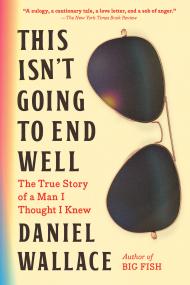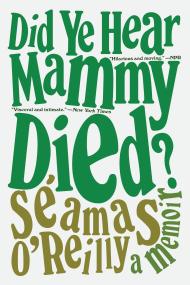EXCLUSIVE EXCERPT
It was a Saturday morning and I had a pimple. I’d spent sixty dollars at the dermatologist to get a cortisone shot (because I get the kind of pimples you can’t pop) but three days later it was just as red, just as big, and just as impossible to cover up. I thought about calling the dermatologist and demanding another shot, for free this time, but that would mean I’d have to leave the house again and I was in a very dark place.
After debating calling in sick, I’d had to spend nine long hours at work the day before—avoiding as many interactions as possible, dodging eye contact with coworkers, and running to the bathroom every half hour to assess the cover-up situation. I remembered sitting on the subway, willing the train to get to my stop, the minutes dragging on until I could finally take off the mounds of concealer, put on an oversize T-shirt, and be ugly in peace. It was exhausting. I couldn’t do that again.
But Jay wanted to go out, specifically to his friend Jeremy’s roof party in Queens. The idea of standing in natural light, spending four hours trying to discreetly hold a plastic cup in front of my chin, created a tightening in my chest. No way. I couldn’t do it. Not again. I felt sick. I felt gross. I just wanted to curl up in bed and forget about myself. I was sad. But I was also angry. Angry that I didn’t look like Gisele Bündchen. Angry at my f*cking dermatologist. Angry that I was wasting another Saturday in this funk.
I spent the morning in what my mother would refer to as a “stew,” which I now believe is short for stupor—a state of near-unconsciousness or insensibility. Imagine a deflated balloon with the sensitivity of an inflated one. It was getting closer to the start of the party and I didn’t know if I should tell Jay I couldn’t go because of the pimple or because of the mood it had created. Obviously both were true, but which was less pathetic? I told him I couldn’t go because I wasn’t in the mood. He asked if it was because of the pimple.
“No, but good to know you were lying when you said it wasn’t noticeable,” I replied, the shock of the p-word temporarily jolting me out of my stupor.
“Oh my God, it’s not noticeable! I just know because you always get like this when you have a f*cking spot!” (He’s British.)
“Get like what?” I demanded.
“Miserable!”
“Well, maybe I wouldn’t be so miserable if I knew you were honest with me when I asked you the first time!” I answered, aware that my argument made no sense (another side effect of this mood is the loss of all rational thought).
So he went to Jeremy’s without me, but not before delivering the gut-wrenching line “You know, this is really unattractive.” This, I believe, was referring to my vanity.
I wanted to answer back, to tell him it wasn’t vanity at all. Couldn’t he see that? That my obsession with looking in the mirror, fixing my hair, stressing over pimples wasn’t because I loved myself, but just the opposite? That the pimple was just a physical manifestation of the self-hatred that coursed through my body as steadily and consistently as my own blood? How could I explain that on those days when I was just in a mood and he couldn’t figure out why, it was most likely because I didn’t like what I saw in the mirror that morning?
I couldn’t. Even if I could, I knew he would tell me to get over myself. He’d tell me that an obsession with my looks, whether I find them bad or good, is still an obsession. He’d tell me that caring this much about a pimple was pathetic. And he’d be right. And it’s where I believe this specific mood stems from—this tug and pull of knowing we shouldn’t care about something so petty while also trying not to collapse in agony over it.
WHAT THE MOOD IS TELLING YOU
There is no agony like feeling ugly. No pain like that of an unflattering photo. In an instant, the world becomes a cruel, inhospitable place. Like a forlorn child on a sidewalk, you want to wail and scream and have someone, anyone, pick you up and take you home, somewhere nice and warm and welcoming. But you can’t cry. You can’t tell anyone what’s really wrong because they’ll put you back down on the sidewalk and kick dirt in your face. That’s not a real problem, stop being so vain.
Instead, when they ask what’s wrong, why you aren’t the same chipper girl you were before seeing the photograph, you’ll bow your head in shame, pushing your sunglasses closer to your brimming eyelids, and say, “Sorry, just in a weird mood.” Or maybe, “Nothing, just don’t feel great.” And if they don’t know you very well they’ll ask if you think you’re getting sick. And you’ll say something like “No, I don’t think so. Nothing serious, anyway.
Just didn’t get enough sleep.” But you’ll really want to break down and finally admit aloud, I look hideous and I want to die.
Unlike physical pain, this is a pain you’re embarrassed to admit to. So you swallow it, day after day until it becomes a throb you barely notice anymore, until something nicks it—a pair of jeans that no longer fit, a beautiful new coworker, a bad hair day—and the ache courses through your body with such force that you’re crying or screaming or yelling or accusing the person nearest to you because you don’t know how to properly deal with the pain you’re in. And after you do that, after you cover the wound with some dull Band-Aid, apologize to those you embarrassed yourself in front of, and scorn yourself for being so ridiculous and petty, you try to go back to daily life, to rejoin the game, but it’s not fun anymore. The clouds are still there and it’s forever a little darker, a little less fun.
No woman escapes life without experiencing this darkness. I know because in 2016, Dove launched a study to find out if female anxiety and body image were linked.
Surveying more than 10,500 women from thirteen countries, The Dove Global Beauty and Confidence Report became the largest comprehensive study on self-esteem to date, and its findings were unsettling. In Japan, it found that 92 percent of women dislike their bodies, followed by 80 percent in the UK. Additionally, 85 percent of the women surveyed stated that they chose not to do important life activities—such as trying out for a team or spending time with loved ones—when they didn’t feel good about how they looked.
I understood that too well. So much of my life was dictated by how confident I felt, and all my confidence stemmed from how good I thought I looked. Days were rare when I’d take that first look in the mirror at six a.m. and find my skin dewy, my hair shiny, and my body acceptable. And even when those days happened, and I walked out of the apartment brimming with confidence, Emily Ratajkowski would choose that day to get on the same subway car.
If I wasn’t passing beautiful women on the subway, it was at cocktail parties, in yoga class, at Juice Generation, on HBO. I felt like I couldn’t get through a day without swatting away feelings of inferiority. No matter how good I felt, that inevitable moment would come when I’d be reminded that someone else was prettier. That’s half the mood, isn’t it? Feeling fine, then encountering some reminder of your own inadequacies and falling into a pit of despair. It’s a quick slip with a hard fall. Musician Florence Welch describes the phenomenon: “I can still come off stage with a crowd applauding and go back to sit alone in my room, scrolling through my phone until I’ve found enough things to make me really unhappy,” she explains. “Unflattering paparazzi pictures are good for that.”
According to the U.S. Department of Health and Human Services, dissatisfaction with our bodies may be part of the reason more women than men have depression. Shocking, but not surprising. We know that capitalism thrives off of women feeling bad about ourselves. We know that if we didn’t see models and perfectly primped actresses on our billboards and in our magazines, commercials, TV shows, and websites, we wouldn’t think of beauty as being so important.
We know that the media rarely show us diversity in height, weight, color, skin type, hair texture, and other physical traits, in order to shame us into buying products that will help us race toward a homogeneous idea of beauty. We know all the sad facts and hard truths. Unfortunately, the truth alone does not set women free.
What does? Is it even possible for a woman to detach herself from her physical appearance? Is it possible to truly not care about what you see when you look in the mirror? Beauty is so abstract it’s almost impossible to get a conclusive answer; however, there was one study that gave me hope. In 2015, professor Viren Swami of Anglia Ruskin University and academics from Sapienza University of Rome surveyed 484 Italian women, half mothers, half nonmothers, on how they felt about themselves and their bodies. Sixty-nine percent of the women who weren’t mothers reported breast size dissatisfaction, a symptom associated with perfectionistic self-presentation. Interestingly, the same results were not found in the surveyed women who were mothers.
Those who had given birth had higher self-esteem about their breasts and a lower probability of suffering from perfectionistic self-presentation. And this is not because their breasts got bigger when they were pregnant. According to Professor Swami, “the most relevant [reason] is that becoming a mother—and particularly the experience of breastfeeding—may focus women’s attention on breast functionality as opposed to focusing on the aesthetics of breasts and the body.”
If these women stopped feeling bad about their breasts after realizing what they were there for, I remember thinking as I read the article, then maybe I could stop feeling bad about the rest of myself once I realized what I was here for.
A few weeks later a friend sent a New Yorker article about how doctors were experimenting with giving terminally ill cancer patients controlled doses of LSD to curb their fear of death.
Under the influence of hallucinogens, said one researcher, patients “transcend their primary identification with their bodies and experience ego-free states . . . and return with a new perspective and profound acceptance.” In interviews with the test subjects, one of the most important themes found between all of their “trips” was that the impediment of a body was gone along with their individual identity.
Like many random, seemingly unimportant moments in our lives, this article, combined with the research I’d been doing, unlocked a door in a part of my mind I couldn’t open before. After years of falling into mild depressions after seeing a bad photograph, an unwanted zit, a wrong angle in the mirror, it clicked. I was a slave to my identity. It was my ego that was holding me in this limbo of self-hatred. And if I was ever going to get past this mood, I’d have to sever the attachment to my ego, not just my looks.
GO VISIT YOUR GRANDMOTHER
Oh, how I regret not having worn a bikini for the entire year I was twenty-six. If anyone young is reading this, go, right this minute, put on a bikini, and don’t take it off until you’re thirty-four.
—Nora Ephron, I Feel Bad About My Neck
Around this time, at the age of twenty-five, I came to the liberating yet terrifying conclusion that I was never really going to change how I looked. Of course, I’d keep trying—keep wasting paychecks on $200 highlights, then growing out the $200 highlights and calling it balayage, then dyeing my hair brown, getting bangs, growing out the bangs, then going back to the $200 highlights—but I knew, deep down, that no amount of highlights or skin creams or new bronzer would ever change anything.
This acceptance was the hardest part, but once I hit it, I was able to move on to the real work. I was on the lookout for ways to accept myself, and my first breakthrough came with a trip to see my grandmother. I was visiting her in Florida for a long weekend, something I tried to do once a year like a good granddaughter, and like every year, she fawned all over me. From the moment I walked through the door she told me how beautiful I was. How radiant. How absolutely stunning.
Then she brought me around to see all her friends. Door to door we knocked and said hello and they gushed over me, talking about my skin, my blond hair, my height. Before, when she’d take me on the same parade, when she’d introduce me as her “beautiful granddaughter” to her friends at the pool and in the dining room, I waved it off. These compliments were coming from people who were surrounded by walkers, age spots, and titanium hips. Of course I seemed beautiful to them; any young person would. Then it hit me. Why did it matter why they thought I was beautiful? Why was I discrediting their compliments? Why couldn’t I see what they were trying to tell me, which was that it didn’t matter that I had a zit on my chin or that I’d gained a few pounds, because in their eyes, I still had the most beautiful thing, the one thing they didn’t have—youth.
I had been wasting so many years waving away their tokens of advice wrapped in praise. Because they weren’t just telling me I was beautiful, they were telling me to enjoy it. Enjoy it because this is the most beautiful I’d ever be. Enjoy it because whether I had gained a few pounds, was breaking out, or my hair was the color of mud, I was still beautiful because I was young. This time, I let them remind me of this. This time, I understood they were trying to tell me what a seventy-five-year-old Bette Davis told Johnny Carson in an interview.
Johnny Carson: Are you a severe critic of yourself when you watch yourself ?
Bette Davis: I loathe myself. I have never liked what I have done . . .
Johnny Carson: But you must be happy with some of your work.
Bette Davis: Now, when I’m removed and see some of them. I never could stand my face, of course. It was just one of those things. Directors kept me out of rushes because I’d be so depressed for days.
Johnny Carson: What didn’t you like about your face?
Bette Davis: I thought it was hideous! I couldn’t stand it. Well now I’m a great many years older and I see some of those films and I don’t think there’s any question, I was the best-looking woman in the world.
The concept of appreciating what you have while you have it is not a new one. The principal theme of Buddhism and all these meditation apps we keep downloading is to learn how to be present in the moment. How to find harmony in the spaces in between. How, as Buddhist monk Thich Nhat Hanh would say, to “wash dishes while washing dishes.”
According to Hanh, we only hate doing the dishes when we’re not actually doing them. Most of the discomfort in our life stems from the inability to be present, to appreciate the moment for what it is while we’re in it. If we were present, if we didn’t let our minds wander outside of the moment when we’re standing at the sink, we would find doing the dishes a pleasant task. Because the act of washing dishes, of dipping our hands in warm, soapy water or letting the fresh water run out of a tap while cleaning up from a meal that satisfied and nourished us, is an overall pleasant human experience. If you can get into it, it’s nice. It’s meditative.
But we stop seeing that way because we’re too busy wishing for something else. Wishing for a dishwasher. Wishing for a maid. Wishing for it to be tomorrow. Wishing for anything that isn’t right now. And then, when the moment is over, when the years have passed and we can no longer wash our own dishes because we’re too old or too weak or too sick, or are now washing for one when we used to wash for two, we’ll wish we had that moment back. That pleasant moment of standing in our home, hands in warm water, bodies and hearts full, our whole life ahead of us, slowly washing dishes.
Like children, we seem to only want things when we can’t have them. We want our looks after we’ve lost them. We long for our youth after we’ve grown out of it. We want the past when we’re in the future. How many times will we have to be told appreciate what you have while you have it before we take heed? How many women have tried to help us, passing this knowledge to an uninterested audience? How many times will we miss the point?
Find a photo of yourself from two, four, five years ago. Seriously, go grab one right now. Look at it and tell me you don’t admire yourself there. Tell me you don’t see how beautiful and young you were. Tell me you don’t feel that pang of regret for having wasted that part of your life feeling ugly.
This isn’t about glorifying youth or yearning for your twenty-three-year-old waistline. It’s an exercise in perspective. It’s about refocusing on all the things you currently take for granted. Your health, your freedoms, your opportunities. So many times our moods are dictated by our inability to accept the moment for what it is. Or as Flannery O’Connor says, “to cherish the world at the same time that you struggle to endure it.” This jolt from my grandmother shocked me into the present by giving me a glimpse of the future. A future where I realized I’d wasted the best years, or at least the youngest years, of my life fretting about the insignificant parts. When I’d look back, I wouldn’t remember the pimples or the frizz or the weight, but that I was young and hadn’t appreciated it.















